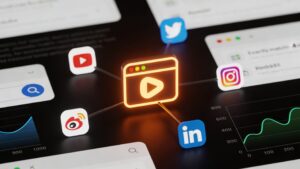Google’s new Consent Mode V2 is all the rage in the EU but its deep-reaching ramifications haven’t become big news in the US. Yet. One of the biggest and widest shocks to hit the entire global SEO community came in 2010 when Google announced it was no longer sharing the organic search phrases with websites it sent clicks to, widely seen as a ploy to boost Google Ads Revenues (which it did, in part) at the cost of SEO.
However, this new existential threat to SEO comes hidden under the cover of darkness spread by GDPR and the March Spam and March 2024 Core update. Many US firms haven’t fully deployed Cookie-less consent and many ignore the GDPR’s most up-to-date wording which says users can’t be co-opted into cookie consent but it is rolling out – whether by legal, informed agencies, consultants or overseas entities eyeing the massive fines being issued by the EU watchdogs.
Table of Contents
ToggleSo what’s the big problem for SEO?
The problem is that cookie-less tracking doesn’t just affect traffic source tracking, it affects page-to-page tracking too. This means that even if you assume 90% of your Direct Traffic (really = unknown traffic) is Organic Traffic, you still won’t see any recorded in Google Analytics.
This means that the only sources being recorded are Google Ads – because it circumvents Cookie tracking and Analytics currently does not have a way to track users without using cookies. On the other hand, GSC can and so its data now differs from Analytics
SEO is about to get 0% of the Attribution Funnel Clicks
This means that anyone coming from Google who doesn’t consent will no longer be tracked and their conversions will no longer be recorded. This is a disaster for SEO, which typically owns anything from 75%-90% of B2B leads
Attribution Marketing, the Funnel, and Budget
SEO has always been the champion of B2B lead generation – it delivers the bulk of leads, and the lowest ROI, and represents the most growth opportunity previous SEO campaigns keep delivering, unlike social and paid, which have to keep being funded and managed.
This blindspot is going to represent a massive blow to the unsung champion of lead generation.
SEO is still maligned despite stellar performance
As I keep pointing out – SEO and indeed Google are the unsung champions. There are so many preconceived thought limiting cliches about both but the numbers just support a different narrative.
For example, in my 20 years doing SEO and PPC, I’d be a millionaire if I had just that $1 for every time I’ve heard “well I never click on Ads” – yet, Google Ads generates about $280billion for the company and that’s only an estimated 1 in 20 clicks!
Google’s ad revenues are bigger than Microsoft’s entire revenue line – Azure, Office, Server, Bing, and Linkedin. And you can add Meta (Facebook, Instagram and Snapchat). And twitter. Google is still bigger. And that’s its Ad Revenue – not the +54% of all sales that originate there, including organic, which is just unknown.
What about GSC data
Not much better – GSC doesn’t rely on Cookies but its more accurate than GA4, as we find out in our updated post.
What can be done about it?
Be on the lookout for 3rd party tools that use cookie-less tracking – we’ll be scouting too so stay posted!





